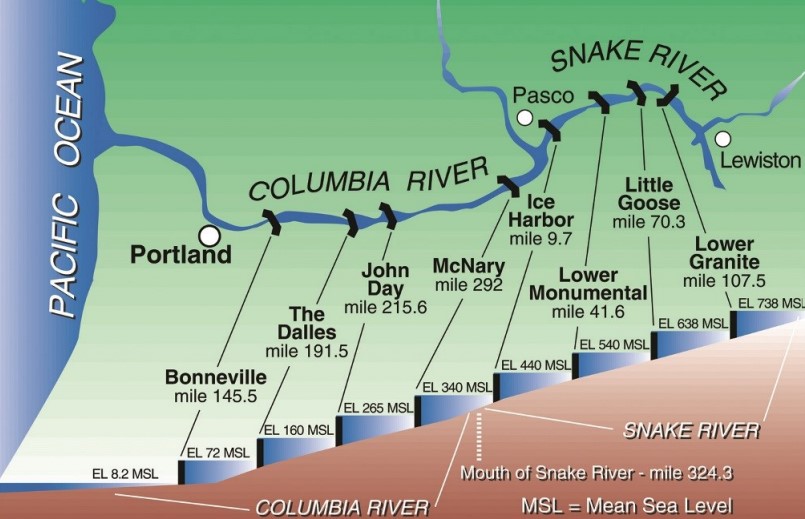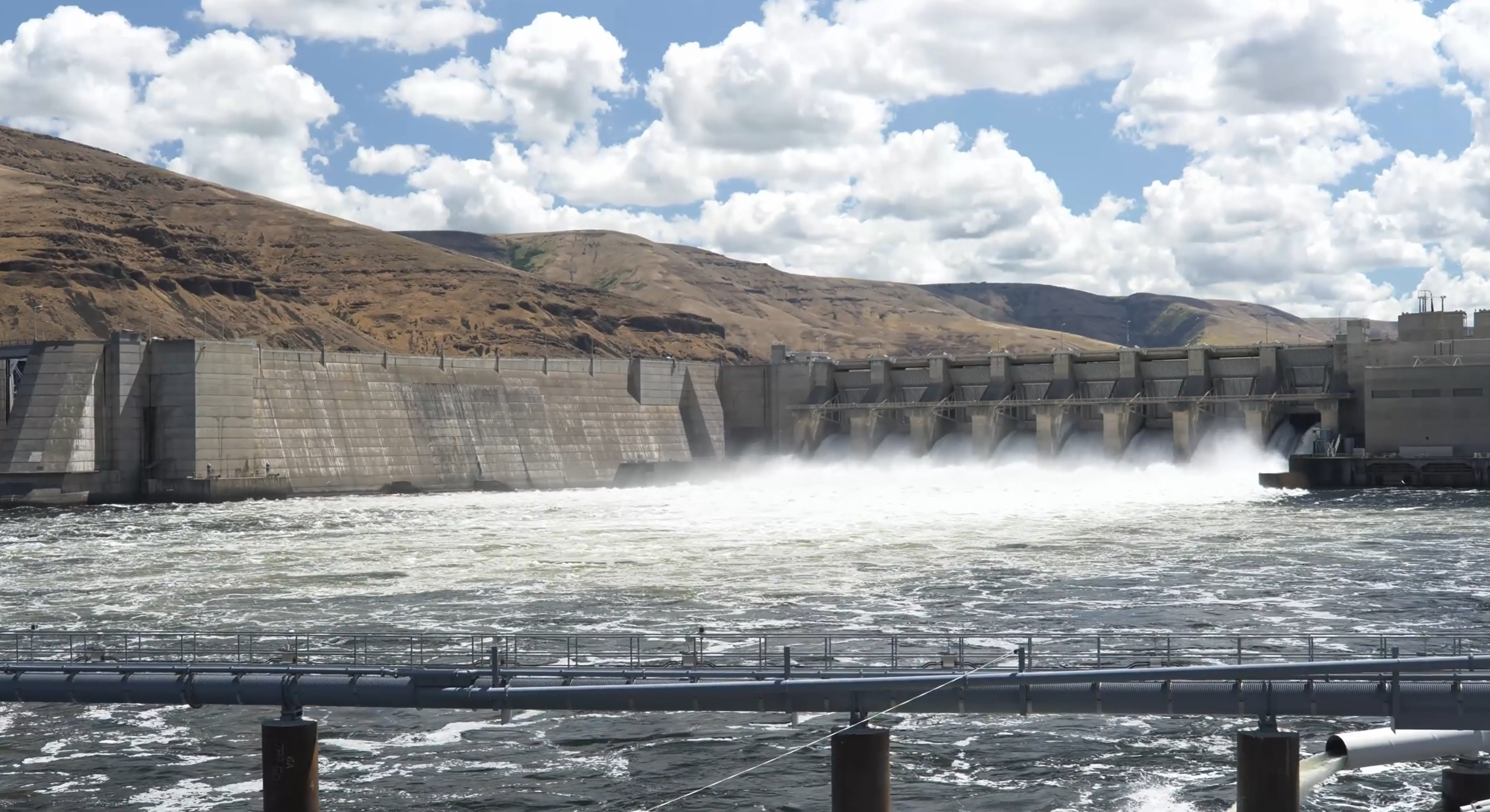A coalition of U.S. farm and food industry groups recently expressed support for a bipartisan Congressional agreement that, in part, maintains navigational access to the Lower Snake River Dams.
The Agricultural Transportation Working Group noted that the Water Resources Development Act* (WRDA) of 2022 helps protect U.S. agriculture’s dependence on comprehensive transportation system including inland waterways and ports.
U.S. Wheat Associates (USW) and the National Association of Wheat Growers (NAWG) join the working group in its strong support for the sustainability and reliability of wheat transportation by barge.
Barges Move U.S. Wheat and Other Grains
The “WRDA can impact trade because barges move about half of all grains to export elevators …,” the ATWG said in a letter to Congressional committee leadership that negotiated the 2022 WRDA. “Critical farm inputs … are transported via the inland waterways system. From the Pacific Northwest to the Mississippi River and the Gulf Coast, the importance of inland waterways and ports to the ATWG and American agriculture is definitive.”
Grain barge navigation on the Columbia Snake River System is an essential part of a logistical web that moves over half of all U.S. wheat exports to more than 20 Pacific Rim countries including some of the largest U.S. wheat buyers in the world. The Snake River moves more than 10% of all wheat that is exported from the United States. U.S. Wheat Associates (USW) and its state wheat commission members strongly support the sustainability and reliability of wheat transportation by barge.

Protect Most Fuel-Efficient Shipping
The working group also noted that the removal of barge access through the Lower Snake River dams would require 39,000 rail cars or 152,000 semi-trucks to replace the cargo volume shipped on the Snake River in 2019, according to the Pacific Northwest Waterways Association. The group added that barging is the most fuel-efficient way to ship goods and failure to maintain access to this system would dramatically increase carbon emissions.
The Columbia Snake River System and other major U.S. river systems truly connect the United States to its trading partners. The river system keeps U.S. wheat competitive by moving higher volumes more efficiently. USW, its state wheat commission members, wheat associations and supply chain stakeholders in the tri-state region of Idaho, Oregon and Washington all support the Columbia Snake River System and will work to see that it continues working for wheat buyers around the world.
*The Water Resources Development Act is biennial legislation that authorizes flood control, navigation, and ecosystem restoration projects for the U.S. Army Corps of Engineers. The final version comes after months of negotiations to reconcile Senate- and House-passed versions of the legislation.


